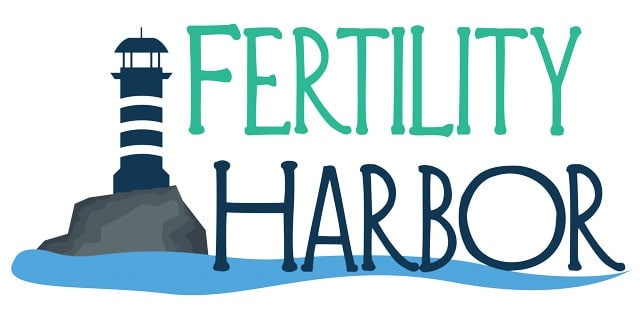This post was reviewed for medical accuracy by Rosalie Gunson, a Certified Registered Nurse Practitioner specializing in fertility care.
So you’re engaged — congrats! — and you know you want to TTC (try to conceive) right after the wedding. What can you do now to increase the chances you’ll be able to get pregnant quickly when you start “trying” several months or even a year in the future?
If you want to get pregnant ASAP after your wedding, here are the top 3 things you can do now to get your body ready:
1) Build and maintain healthy habits.
2) Make an appointment with your health care provider to check in.
3) Start tracking your natural menstrual cycle.
Prep for TTC Step #1: Build and maintain healthy habits
This step is first because meaningful lifestyle changes don’t happen overnight. It takes time to establish new habits, and it takes more time for those changes to start impacting your health. It’s not like randomly eating a salad on the day you ovulate is going to make a difference (wouldn’t that be sweet, though?!).
Here are some examples of healthy habits that will help lay a good foundation for a BFP and a healthy pregnancy:
- Start taking prenatal vitamins every day.
- If you smoke, quit.
- If you drink alcohol regularly, quit or at least dial back.
- Make time for relaxing hobbies to relieve stress.
- Exercise a moderate (but not extreme) amount.
- Eat well-rounded, nutritious meals.
- Maintain a healthy weight — without doing any crazy crash diets
For more info on the whole weight issue as it applies to infertility and medical care, check out my post TTC With a High BMI: How to Get the Quality Care You Deserve.
Prep for TTC Step #2: Make an appointment with your health care provider to check in
The most obvious person to see is your gynecologist. If you don’t have one yet, you can certainly start with your primary care physician. Just keep in mind that you might get referred to an ob/gyn anyway if you need a more in-depth fertility evaluation. I go into more detail about this in the post Can Your PCP Prescribe Clomid (and Other Fertility Meds)?
So what should you talk about? Basically, the visit is an opportunity to discuss your plans to get pregnant, go over any concerns (yours and your doctor’s), review your family history, and make sure you’re up to date with immunizations and screenings.
You should also mention any chronic conditions you’re being treated for, including any medications you take regularly. You wouldn’t want to get pregnant and then find out your medication isn’t safe to keep taking in pregnancy!
Also, suddenly stopping some medications can be dangerous, so it’s good to give yourself some time to transition to another prescription if needed.
Speaking of medications…
Going off birth control before your wedding
If you use an ongoing method of birth control (like the Pill or an IUD), you should talk to your doctor about what to expect when you discontinue it. For more info on IUDs specifically, see my post TTC After IUD Removal: How Soon Can You Get Pregnant?
When exactly to stop using birth control is, obviously, up to you. Many forms of birth control suppress your natural cycle, so you may want to consider getting your IUD taken out or stop taking the Pill several months before your wedding. Otherwise you won’t be able to tell what your body does on its own (see Step #3 in this list).
Don’t assume that your birth control needs months to get out of your system — that’s not really a thing. You need to use another form of birth control, like condoms, if you’re still trying to prevent pregnancy. You’ve been warned!
Planning to TTC with known fertility issues
Lots of people planning to start TTC after their wedding already know they have a fertility issue. This is especially common when one partner already has children or struggled with infertility in a previous relationship, but wants to try for a biological child with their new spouse.
Some examples of fertility issues that definitely wouldn’t be a surprise to you:
- Sterilization (tubal ligation or vasectomy) that needs to be reversed
- Past medical treatment that is known to affect fertility, such as radiation for cancer
- Past pelvic surgery, such as the removal of a fallopian tube to treat endometriosis
- History of pregnancy loss
If you’re in one of those scenarios, you might already be planning surgery or IVF to help you conceive: There’s no reason you can’t start the process (including testing, consults with fertility clinics, and even surgery) before the wedding, to give yourselves a head start.
Women who’ve had multiple miscarriages should consider getting a referral to a reproductive endocrinologist (RE) to dig further into the problem and see what can be done to encourage a successful pregnancy in the future.
Potential infertility red flags your doctor would look for
Back to that doctor’s visit… Not all fertility issues are as obvious as a past vasectomy! A good doctor will also be on the lookout for a fertility problem that’s not on your radar, either because it hasn’t been diagnosed yet or because you didn’t realize the potential impact on your fertility. Here are some examples (some of them also apply to men, so your fiance should get checked out as well!):
- Very irregular or absent periods
- Heavy bleeding or pelvic pain
- Signs of a hormone imbalance, such as hair loss, hot flashes, changes in mood, etc.
- Signs of a thyroid disorder
- Being significantly underweight or overweight
- History of sexually transmitted diseases
- Family history of genetic diseases
- “Advanced maternal age” (see below)
Having any of these doesn’t necessarily mean you’re infertile. It might just trigger your doctor to order some labs or do a little more investigation so you’re in the best shape possible when you start seriously “trying.”
TTC at an “advanced maternal age” (35+/ 40+)
If I had my twins 6 months later than I did, I would have been officially considered a geriatric mother. Calling a 35-year-old woman “geriatric” is ridiculous, but the truth is that time isn’t on your side when you’re trying to conceive in your late 30s or early 40s. Egg quality and hormonal levels start to drastically decline after 35, and the risk of various complications goes up.

I’m not saying getting pregnant at 35+ is impossible without fertility drugs — that would be absurd! It happens all the time.
But if you fall in this “advanced age” category and really want to get pregnant ASAP after your wedding, start researching your fertility options sooner rather than later. You could even get some preliminary testing done, including some hormone tests for you and a semen analysis for your fiance.
Women who know their fertility is declining (as with diminished ovarian reserve, for example) but aren’t ready to be pregnant yet may want to consider freezing their eggs (or embryos) for a future IVF cycle.
Prep for TTC Step #3: Start tracking your natural menstrual cycle
Assuming that you’re off birth control and you’re going to try to conceive without fertility drugs, it’s super important to start tracking your menstrual cycles.
Keeping track of your cycle, either with an app on your phone or an old-school paper calendar, will help you confirm that your cycles are a reasonable length (25-35 days), and that you are ovulating. For more info on extra-long cycles, see my post When Do You Ovulate if You Have 45-Day Cycles?
Confused about what’s normal and what’s not? You’re not alone. Lots of women have spent so long trying NOT to get pregnant, they forgot (or never learned) the nitty-gritty details of how it actually works. Now is the time to brush up! The book Taking Charge of Your Fertility (Amazon link) is a great place to start.
That book goes into a lot of detail about tracking your cycles, but you don’t have to obsess. For example, if tracking your basal body temperature every single morning sounds like overkill to you, try doing it the lazy way: just temping in the middle of the cycle (to confirm ovulation) and at the end of the cycle (to see if your period is imminent).
You can find both the book and a recommended basal body thermometer on my Infertility Starter Pack page, along with other TTC essentials!
Even just writing down the dates of your period is better than nothing! At least you’ll have a solid answer when your doctor inevitably asks you when your last period was, and you’ll know if your cycles are abnormally long or short.
Timing ovulation for your wedding night or honeymoon
If you don’t think you’ll need fertility treatment, and you’re going to try to get pregnant immediately after your wedding, ideally you would be ovulating during your honeymoon, right? The problem is that most couples set their wedding date many months or even years in advance, which is too early to guarantee the timing will work out.
The best way to maximize the chance that you’ll hit your fertile window on your honeymoon is to plan a long trip. If you can afford it (and you both have enough vacation time saved up at work!), going away for at least three weeks would be ideal. Just make sure your trip is not in an area known for diseases that could affect a possible pregnancy, such as the Zika virus.
Common reasons to wait to TTC until after the wedding and honeymoon
Having said all this, there are many reasons it might make sense to wait a little bit longer to TTC.
If you’ll be coming off long-term birth control, it will probably be impossible to know for sure what your cycle is going to be doing on the Big Day. There’s a chance that you could get your period on your wedding day itself (!!!) or during the honeymoon. Women who absolutely hate that idea might consider staying on birth control until they’re back home.
Also, wedding planning itself can be super stressful. Adding the pressure of TTC can feel like too much. If the idea of conceiving right after the wedding is more anxiety-inducing than exciting, consider giving yourselves some time to settle into your awesome new married life.
Another benefit of waiting a little bit longer to TTC is that you can fully enjoy your wedding and honeymoon — complete with alcoholic beverages, hot tubs, and other indulgences that are not recommended during pregnancy. Why not live it up while you can?
Parting words
If you’re reading this post because you’re engaged and hoping to conceive soon after your wedding, congrats and good luck! I hope these tips have helped you prepare a bit. Don’t forget to take care of yourselves and each other <3 The adventure is only just beginning.

This post was last updated in June 2020.



 I’m Jenn! Here I am with my beautiful twin boys. My pregnancy was possible thanks to fertility treatment for PCOS.
I’m Jenn! Here I am with my beautiful twin boys. My pregnancy was possible thanks to fertility treatment for PCOS.


